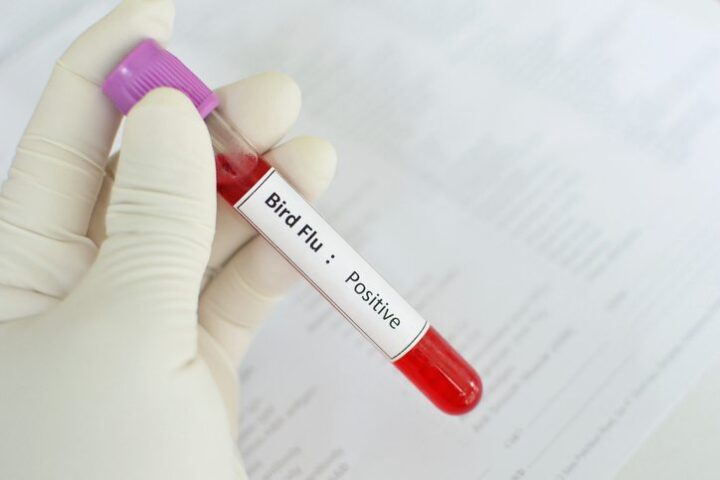

The Michigan Department of Health and Human Services has reported a farm worker diagnosed with bird flu on Wednesday, marking the second human case linked to an outbreak in U.S. dairy cows.
The patient, who had been in contact with cows suspected of being infected, exhibited mild eye symptoms but has since recovered, the state health department stated.
The current health risk to the general public remains low, Dr Natasha Bagdasarian, Michigan’s chief medical executive said in a press release, noting that no signs of sustained human-to-human transmission has been detected.
The Centres for Disease Control and Prevention (CDC) stated that the patient was being monitored for symptoms following exposure to infected dairy.
Although a nasal swab of the patient tested negative for influenza, an eye swab tested positive for the influenza A(H5) virus, confirming an eye infection (conjunctivitis).
This would mark the second instance of a person developing conjunctivitis from a bird flu infection contracted from a cow.
The first case occurred in late March when a farm worker in Texas was diagnosed, marking the first globally documented case of the virus spreading from dairy cows to a human. The Texas patient had eye inflammation and was treated with antiviral medication.
Since 2020, a bird flu virus has spread to various animals, including dogs, cats, skunks, bears, seals, and porpoises, across many countries. Earlier this year, officials detected the virus in U.S. livestock, raising concerns about food safety and human infection.
Meanwhile, Australia, earlier on Wednesday, reported its first case of the avian influenza in a young child who previously contracted the disease in India but recuperated.
“This is the first confirmed human case of highly pathogenic avian influenza in Australia,” State Chief Health Officer, Dr Looker, stated, adding that this was the first time the virus was found in a person or animal in Australia.
He, however, stated that there is a low possibility of people contracting the disease because it doesn’t spread to humans.
About The Author
Related Articles
Burkina Faso: President Traoré Grants Sentence Reductions to 963 Prisoners
Burkina Faso’s President, Captain Ibrahim Traoré, has approved sentence reductions for 963...
ByIkenna ChurchillJanuary 15, 2026Mali: Goïta Announces National Consultations on Political Party Reform in 2026
Mali’s transitional president, General Assimi Goïta, has announced plans to launch national...
ByWest Africa WeeklyJanuary 15, 2026Mali: Fresh Terrorist Attack Hits Industrial Sites in Bafoulabé
A new armed attack struck the Bafoulabé district in Mali’s Kayes region...
ByWest Africa WeeklyJanuary 15, 2026Niger Revokes Licences of Drivers Who Refused to Deliver Fuel to Mali Amid Jihadist Attacks
Niger has revoked the licences of dozens of transport operators and drivers...
ByWest Africa WeeklyJanuary 15, 2026











